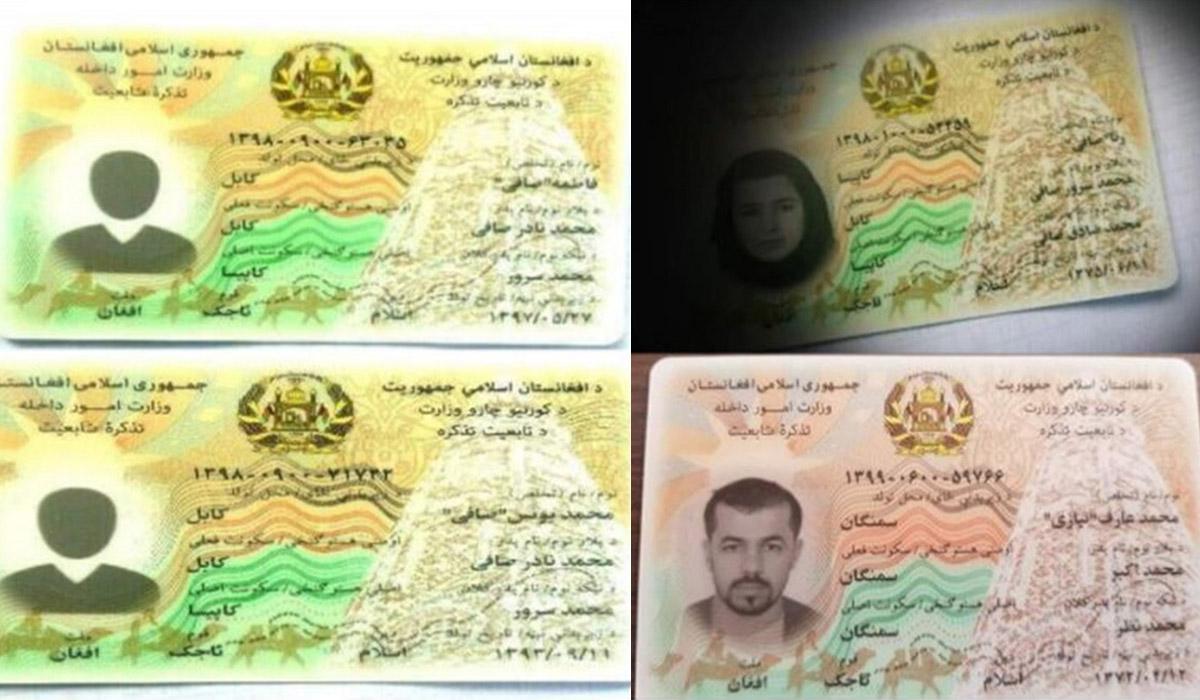PashtoScoop Media has obtained documentary evidence showing that the staff at Afghanistan’s National Identity Agency has mentioned Tajik nationality in the CNIC cards for Pashtun Afghan nationals. Besides the necessary documents, local sources have also provided a number of sample electronic identity cards that show Tajik nationality on Pashtun citizen’s ID cards.
A local source further mentioned that the electronic ID card distribution staff in Kapisa was doing so systematically and deliberately, adding that this is all part of an attempt to censor the identity of Pashtuns in the province. A A few samples of the electronic ID cards sent by local sources from Kapisa, a number of people nicknamed Safi or Hotak have been identified as similar Tajiks in the national category.
Moreover, several residents of the Kapisa province have also shown agreement to the alleged misconduct from the government officials and believe that this is being done with the Pashtuns intentionally and deliberately.
Mohammad Yunus Safi, a Kapisa local who was categorized as a Tajik instead of Pashtun on his electronic ID card, told media that the staff at the electronic ID distribution office in Kapisa were doing so in a very skilful and systematic way.
He further explained: “When I got my ID card, it was mentioned as Tajik instead of Pashtun. “But the staff was completely unaware of it and told me that it was not possible to correct because the data has been sent to the central office and there was no solution.” Aziz Khan Hotak, a university student in Kapisa, said staff at the electronic ID distribution office were trying hard to conceal the identities of Pashtuns living there and convert them into Tajik. He added: “I have seen similar problems. “But through social media, some of my friends from other provinces have also informed me of such problems. The government should take it seriously.”
On the contrary, Gulzaman Shinwari, a Kapisa provincial council member, denied the allegations. He further said that no one would be allowed to change the nationality of Pashtuns on electronic IDs. “First the recipient is given a form and he is obliged to fill the form correctly. When there is something written on the forms, the ID workers write the same thing, which means no one can do it on their own because we are watching all these things,” he added.
Meanwhile, the National Statistics and Information Agency of Afghanistan (NSIA) claimed that the whole process of issuing electronic ID cards to Afghan nationals is completely transparent and no one will be allowed to interfere in it.
Rohina Shahkar, a spokeswoman for the agency, also denied the allegations in an interview with a local media outlet, adding that no nationality had been imposed on the people in the process.
Shahkar said in her statement, “The National Electronic Identity Card process is completely transparent. If someone fills in these forms in order and writes their information correctly, there will never be any mistakes and if there is any problem that seems to be the mistake of our colleagues, we will correct it again. In short, electronic ID is a technology-dependent, secure, efficient and effective process.”
The distribution of electronic IDs to Afghan nationals started with much controversy—with a limited number of people within the government reluctant to start. As of now, the process continues not only in Kabul but in many other provinces as well.


